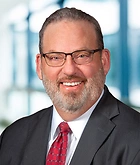Labor and Employment Alert: East Meets West: Pro-Employee Legislative Initiatives on Both Coasts
Both the West Coast (led by San Francisco) and the East Coast (led by Philadelphia) recently illustrated growing pro-employee trends in defining employee work schedules and in ensuring paid sick leave for employees.
San Francisco has taken the lead as the first locale in the country to enact scheduling limits for employees. On November 25, 2014, the San Francisco Board of Supervisors unanimously passed the “San Francisco Retail Workers’ Bill of Rights.” On December 5, San Francisco’s Mayor returned the measure to the Board of Supervisors unsigned, which means it now becomes law. The ordinances go into effect in six months. New York City, the District of Columbia, Minnesota, Delaware, New York and Michigan are considering similar measures.
San Francisco’s Retail Workers’ Bill of Rights combines two pro-employee ordinances: the “Hours and Retention Protections for Formula Retail Employees” ordinance and the “Fair Scheduling and Treatment of Formula Retail Employees” ordinance. It applies to “Formula Retail Establishments” with at least 20 employees in San Francisco and 20 or more locations globally. San Francisco defines “Formula Retail Establishments” as businesses that engage in retail sales or services that maintain two or more of the following features: a standardized array of merchandise, a standardized facade, a standardized décor and color scheme, a uniform apparel, or standardized signage, a trademark or a servicemark. Basically, this means large retail chains.
The Retail Workers’ Bill of Rights expands employee protections by defining the parameters of employee work schedules and by requiring that part-time employees be treated the same in certain respects as full-time employees. Employers will be required to post a notice of these employee rights:
- Advance Notice of Work Schedules. To ensure predictable scheduling for employees, employers must provide employees with at least two weeks’ notice of their work schedules. Employers will be forced to pay a premium for schedule changes. If an employee’s schedule is changed with less than seven days’ notice but more than 24 hours’ notice, the employee is due one hour of additional pay for each shift change. If the schedule is changed with less than 24 hours’ notice, the employee is due between two and four hours of pay (depending on the scheduled shift’s intended duration).
- On-Call Schedules. An employee who is on-call, but who is not actually called in to work, is due between two and four hours of pay (depending on the shift’s duration) unless the employer provides at least 24 hours’ notice that the on-call shift has been cancelled.
- Extra Hours for Current Part-Time Employees. The Retail Workers’ Bill of Rights requires employers to offer any extra work hours to current part-time employees before hiring new employees or subcontractors in order to allow the part-time employee to work 35 hours per week. The employer is required to offer this extra work if the employer reasonably determines that the part-time employee is qualified and the work is the same or similar to the work the part-time employee has performed for the employer.
- Equal Treatment for Part-Time Employees. Part-time employees must be treated the same as full-time employees at their same level in their starting hourly wage, access to time off, and for the most part, promotion eligibility.
- Sale of Business. If an employer is sold, the successor employer must retain for 90 days all employees who worked for the former employer for at least six months prior to the sale. This requirement does not apply to supervisory or managerial employees.
San Francisco has long been on the forefront of pro-employee legislation. In 2006, it became the nation’s first city to pass a paid sick leave ordinance. Since then, at least 16 cities and three states have enacted paid sick leave laws. And now, on the other side of the country, Philadelphia Mayor Michael Nutter has indicated that he too will pass mandatory paid sick leave legislation, which was recommended by the Mayor’s Task Force on Paid Sick Leave. The Mayor’s Task Force estimates that the proposed legislation would cover about 120,000 employees. The Mayor had vetoed similar legislation in 2011 and 2013.
Currently, Philadelphia’s proposed sick leave legislation would require employers with 15 or more employees to provide paid sick leave to qualifying employees. Employers with fewer than 15 employees would have to provide unpaid sick leave that tracks the accrual and use requirements for paid sick leave.
As envisioned, the sick leave legislation would exempt several classes of employee, including federal and state employees, employees covered under a collective bargaining agreement, temporary workers employed for less than 90 days, seasonal workers, interns, adjunct faculty, independent contractors, and part-time employees working on average less than 15 hours per week over a 90-day period.
Employees would accrue one hour of sick leave (either paid or unpaid depending on the size of the employer’s workforce). Employees may accrue up to 40 hours per rolling 12-month period of employment. Employees begin earning sick leave hours beginning with the commencement of their employment. However, an employee cannot use any earned sick leave until 90 days after their employment began. Employees may use accrued sick leave in the smaller of hourly increments or the smallest increment permitted by their employer’s payroll system. Restaurants, however, may require their employees to take sick leave in 4-hour increments or the smallest payroll increment permitted within their existing system.
The San Francisco and Philadelphia ordinances illustrate the maxim that “all politics is local.” Legislative initiatives at the local level can change frequently and can differ dramatically from what the surrounding state or federal law requires or permits. Contact your Vorys lawyer to discuss how local conditions may affect your business interests.


